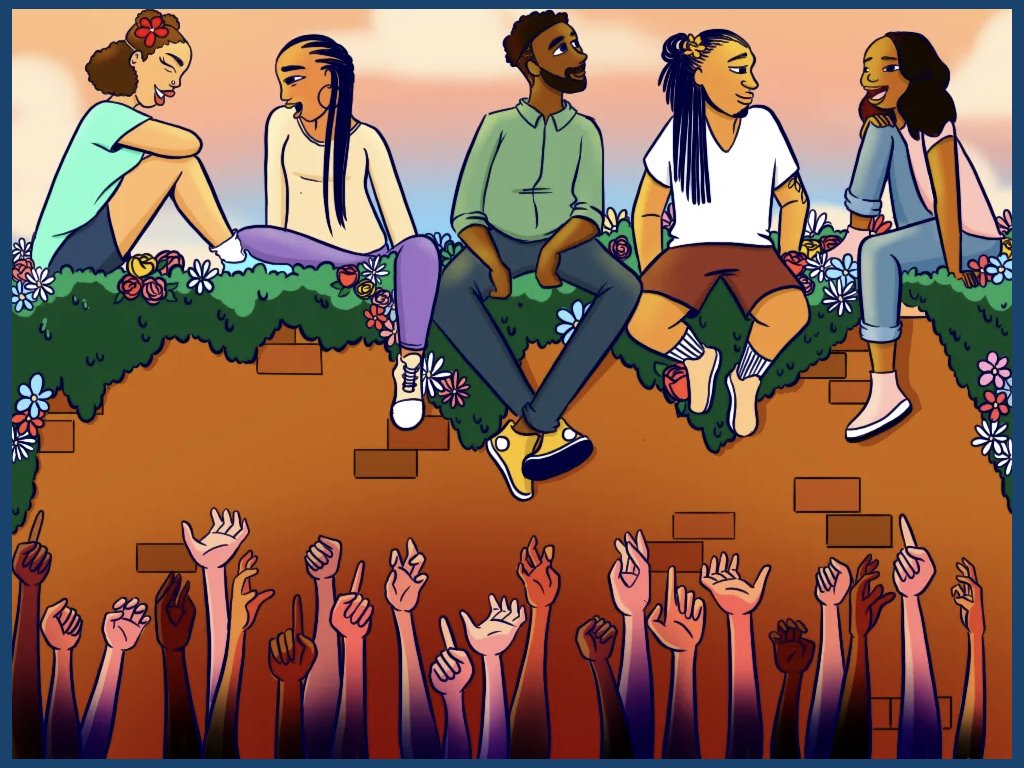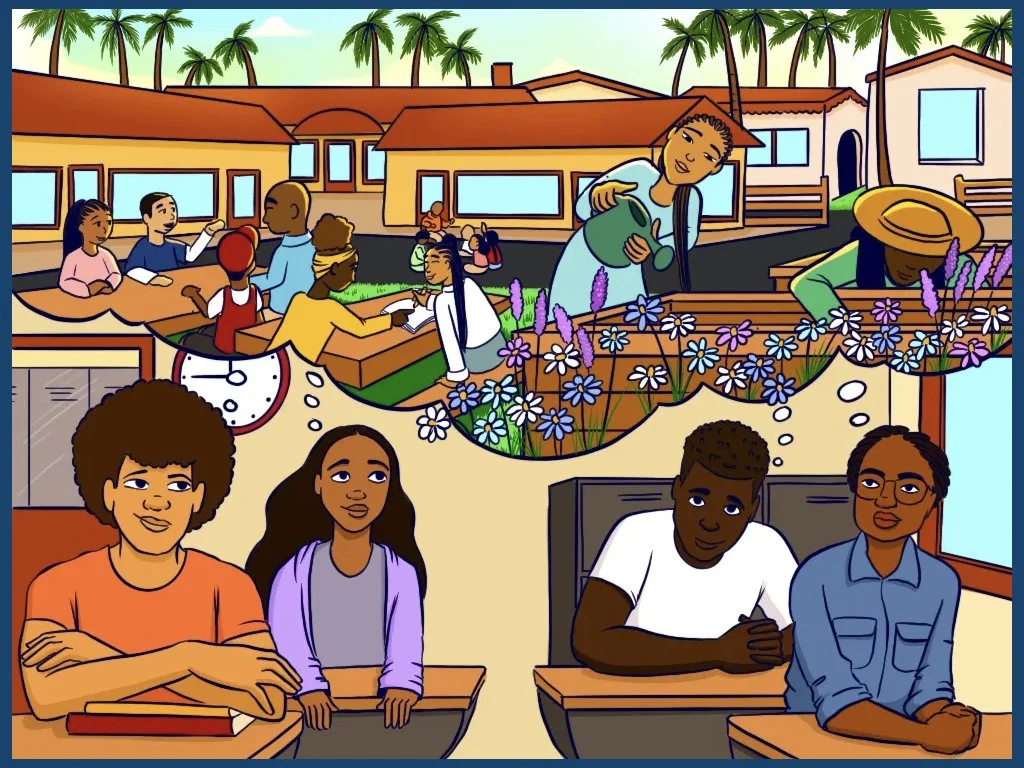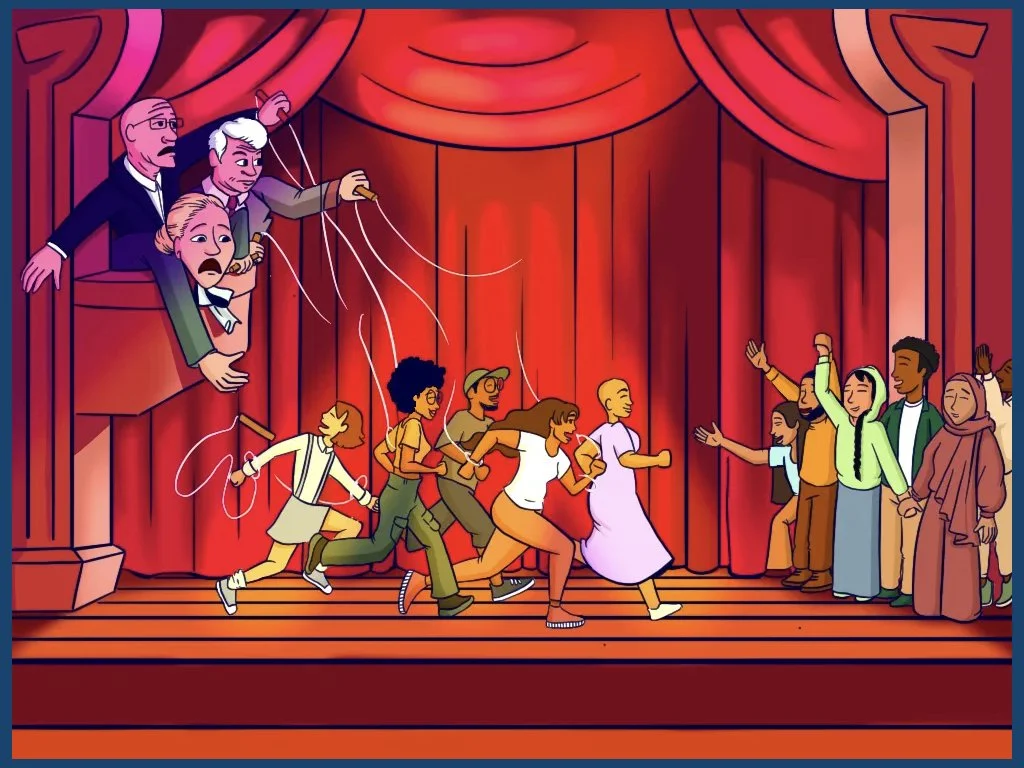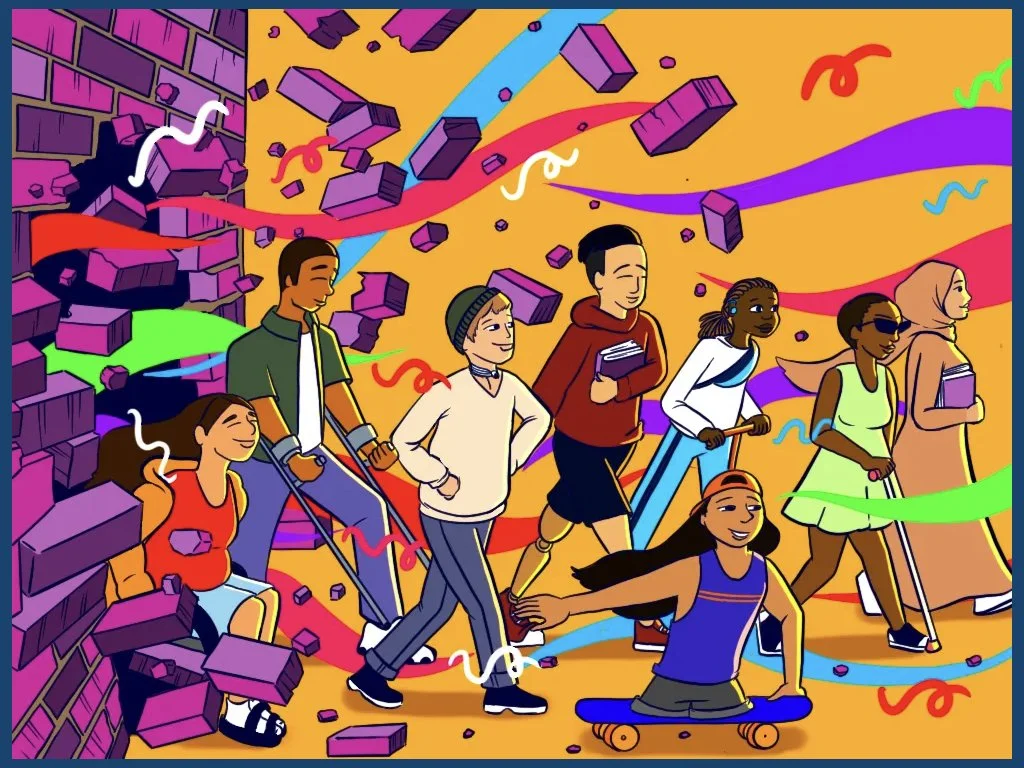CARL Co-Publishes Abolition Essay Series with National Center for Institutional Diversity
Illustration by Megan Rizzo
Imagining Abolition and Educational Safety Beyond Policing
In collaboration with the National Center for Institutional Diversity (NCID), the Campus Abolition Research Lab curated a new essay series for NCID’s Spark Magazine entitled, “Imagining Abolition and Educational Safety Beyond Policing.” Below is an excerpt for the series introduction written by lab director Dr. Charles H.F. Davis III:
The summer of 2020 marked yet another racial awakening in the United States. Various occurrences of anti-Black and state-sanctioned violence, including the murders of George Floyd and Breonna Taylor, inspired a massive wave of national protest that reinvigorated the public discourse and raised longstanding questions about the role of police in our society — and in particular, their presence in educational environments. It also brought into closer relation the longstanding work of community organizers working to defund and disarm the institution of policing and the intergenerational concern of students and families impacted by the violence of school discipline policies and brutality of campus police.
The parallel movements for police-free schools and police-free college campuses encouraged educational researchers to further investigate education’s policing problem, but also the broader realities about public safety at the intersection of education and society. Altogether, new demands emerged for the abolition of school and campus police as well as the socioeconomic conditions that necessitate their presence.
Conceptually, abolition in the United States is historically rooted in the efforts to resist and dismantle the settler-colonial and racial project of chattel slavery. First and foremost, this includes the deliberate acts of resistance undertaken by enslaved Africans at the very point of their violent capture and extends to their rebellions on plantations throughout the Caribbean and the Americas. It also includes the organizing and labor of freed people (often living in fugitive) as well as evangelical colonists who were morally opposed to the institution of slavery and militiamen (e.g., John Brown) who took up arms to end slavery by force. The basic premise of today’s abolition, however, is its recognition and refusal of carceral approaches (i.e., institutionalized discipline, judicial punishment, and state-sanctioned confinement) to address issues of harm, violence, and accountability, which are deemed both racially discriminatory and ineffective. This evolution is entirely the result of prison industrialization as an afterlife of slavery, by which slavery remains a constitutionally permissible form of punishment for those convicted of a crime in the US.
So, what is abolition doing in a “nice place” like education? I’m glad you asked.
Included Essays
The Making of Unsafe
Schools for Black Youth
by Jade Jacobs
Safety for
Black College Students
by Ashley Carpenter
No Cops Needed in the Hallway: The LA Push Against School Police
by Bethany Jo Murray, Shan Missouri, Pharren Miller, Michael Anderson, and David C. Turner III
Title IX Policies Mirror the Prison System and Harm Student Survivors
by M. Colleen McDaniel
and Jennifer M. Gómez
No Polícia, Mas Comida! Nourishing Minds, Not Policing Spaces
by Annalisa Myer
Are Students With Disabilities Being Prepped for College or Confinement?
by Lauren Shallish,
Talib Charriez, and LaChan Hannon







